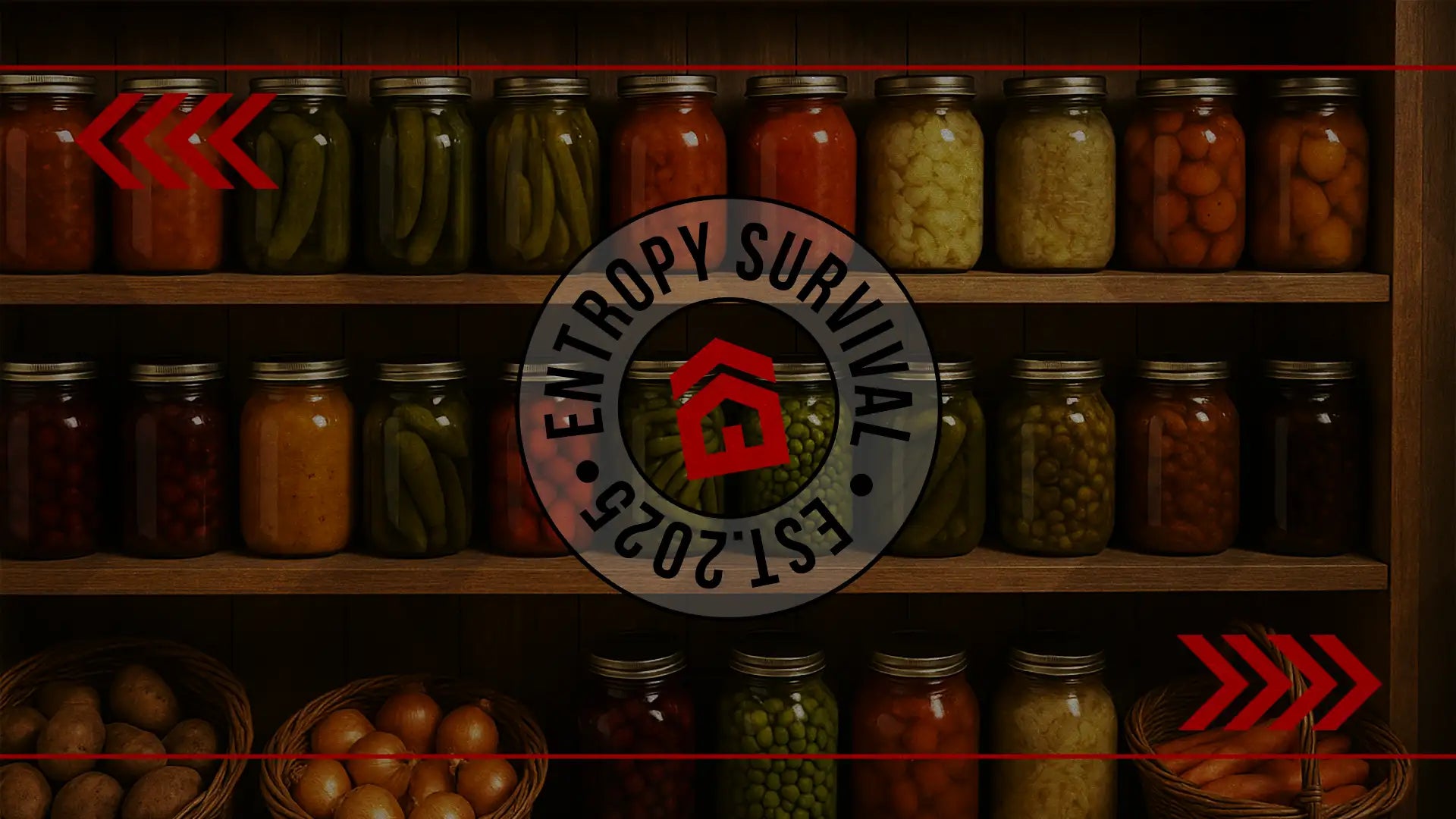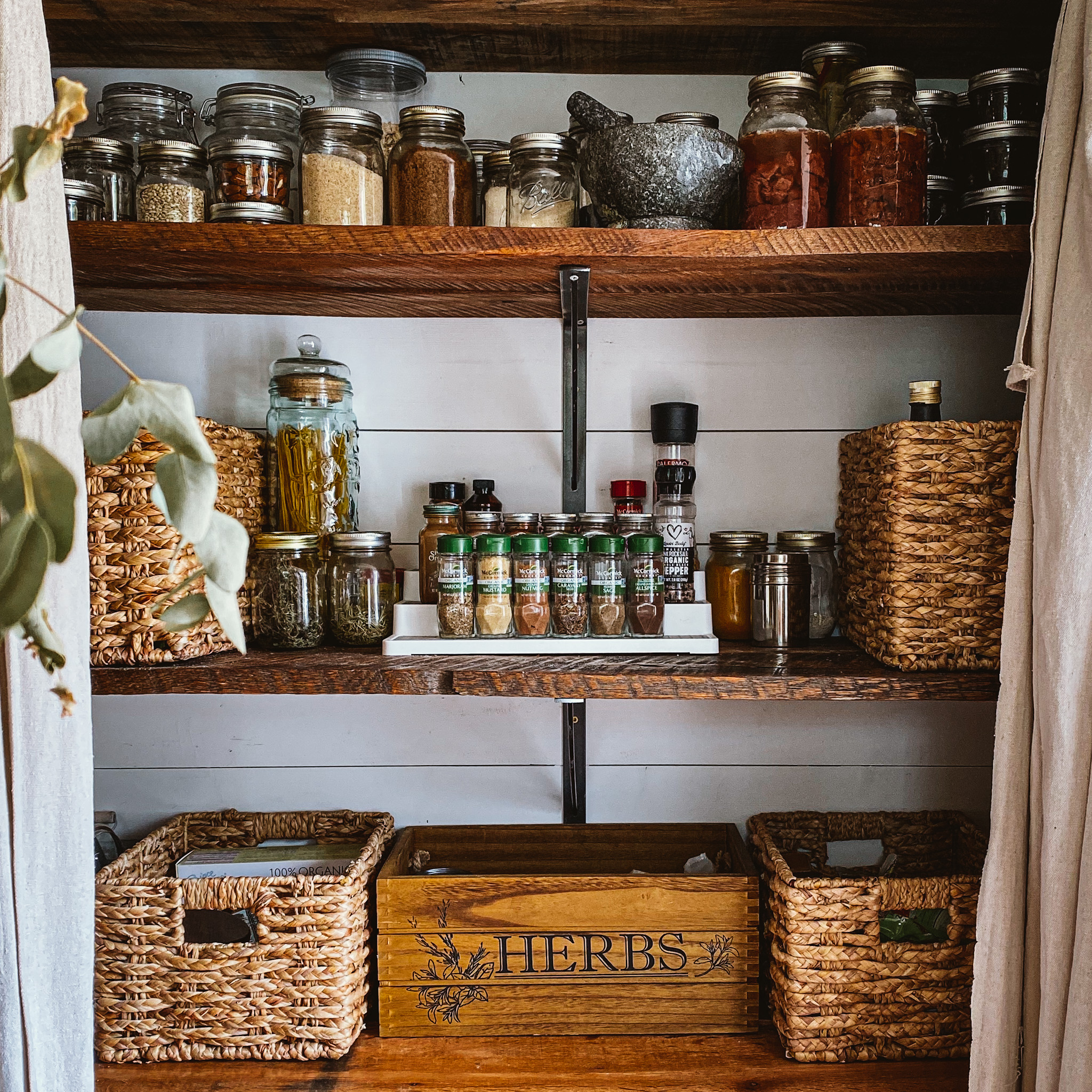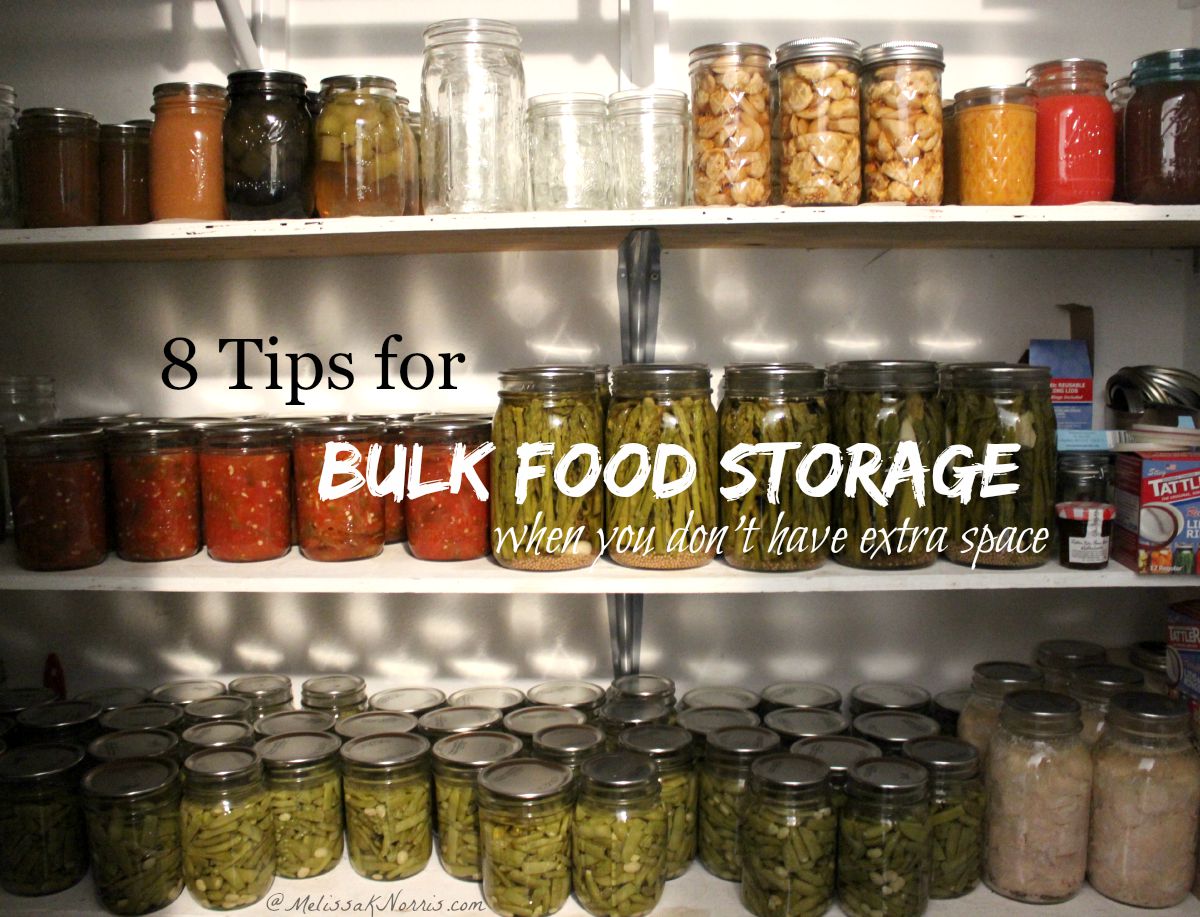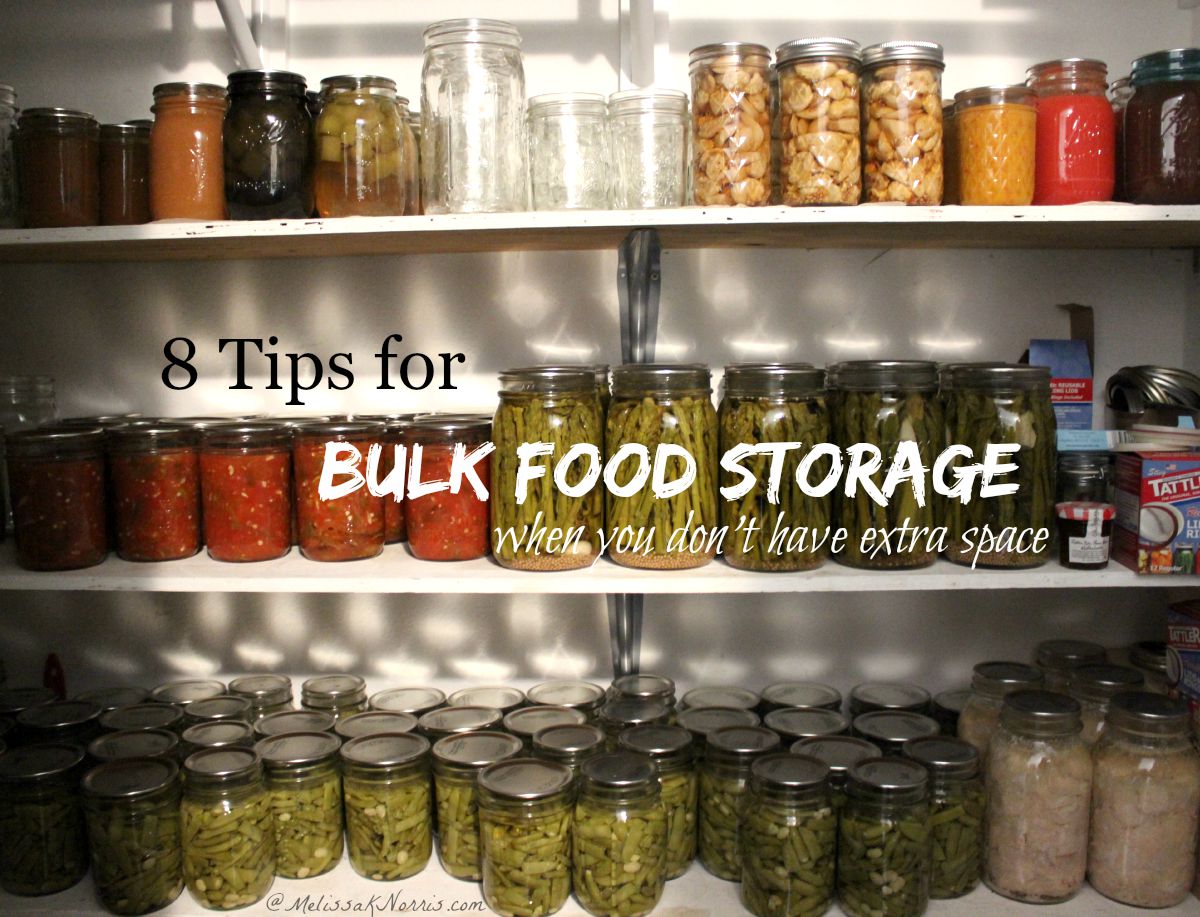
Bulk Buying for the Homestead: Save Money, Reduce Waste, and Thrive
Are you tired of constant trips to the store, only to pay inflated prices for the things your homestead relies on? I know I was! There's something deeply satisfying about knowing you're prepared for anything, and a big part of that comes down to intentional bulk buying.
Homesteading is about self-sufficiency, sustainability, and connecting with our food sources. But it can also be expensive! That’s where strategic bulk buying comes in. It’s not just about buying huge quantities of anything you see on sale; it's about making smart, informed choices that align with your needs and values. By buying in bulk, you can save money, reduce waste, minimize trips to town, and increase your self-sufficiency. In this guide, we'll explore what to buy in bulk, where to find the best deals, how to store your purchases properly, and how to maximize your savings. Get ready to stock up, save big, and thrive on your homestead!

This is what we're working towards: an organized pantry that empowers your homestead.
What to Buy in Bulk (and What to Avoid)
Knowing what to buy in bulk is half the battle. The key is to focus on items you use regularly and that have a long shelf life. For the homestead, this often includes:
- Animal Feed: Chicken feed is a prime example. We go through bags of it every few weeks. Buying in larger quantities, or even by the pallet, saves us a significant amount of money over time and reduces those frequent trips to the feed store. The same applies to feed for other livestock like goats, pigs, or rabbits.
- Seeds: If you're serious about gardening, buying seeds in bulk is a must. Seed packets can be expensive, especially if you're planting large areas. Buying bulk seeds allows you to plant more of what you love and experiment with new varieties without breaking the bank. Store them in a cool, dark, and dry place.
- Grains and Legumes: Rice, beans, oats, corn, and other grains and legumes are staples in many homestead kitchens. They're versatile, nutritious, and have a long shelf life when stored properly. We use them in soups, stews, baked goods, and as side dishes.
- Canning Supplies: If you're preserving your harvest, you'll need a steady supply of jars, lids, and pectin. Buying these items in bulk ensures you're always prepared for canning season. Jars can be reused, but lids are single-use, so stock up!
- Cleaning Supplies: Vinegar, baking soda, and soap-making ingredients are essential for cleaning and sanitation on the homestead. Buying these items in bulk is not only cost-effective but also reduces your reliance on harsh chemicals.
- Personal Hygiene Items: Toilet paper, soap, and shampoo bars can all be purchased in bulk to save money and reduce waste. Look for eco-friendly options.
- Fertilizers: Especially organic options like bone meal, rock phosphate, or kelp meal if you use these things in your garden or pasture.

Bulk animal feed is a great way to save money and reduce trips to the store. Just ensure proper storage!
Conversely, some items are best avoided when buying in bulk:
- Perishable Items: Unless you have a plan for preserving them (e.g., canning, freezing, dehydrating), avoid buying large quantities of fruits, vegetables, or dairy products that will spoil quickly.
- Items with Limited Shelf Life: Pay attention to expiration dates. Don't buy more than you can reasonably use before the item expires.
- Items You're Unsure About: Don't buy a huge quantity of something you've never tried before, unless you're willing to risk wasting it if you don't like it.
- Items You Can Easily Produce: If you can easily grow it or make it yourself, consider doing that instead of buying it in bulk. For example, if you raise chickens, you may not need to buy eggs in bulk.
Key Takeaway: Before making any bulk purchase, carefully consider your consumption habits, storage space, and the item's shelf life.
Where to Source Your Bulk Supplies
Finding the right source for your bulk supplies is crucial for both cost savings and quality. Here are some options to consider:
- Local Farms & Producers: Buying directly from local farms and producers is a great way to support your community and get high-quality products. Look for farms that offer bulk discounts or CSA programs with large shares of seasonal produce. We get our raw milk in bulk from a local dairy farmer and the quality is unmatched! Plus, knowing where our food comes from is incredibly important to us.
- Bulk Food Stores: Stores like WinCo, Costco, and various co-ops are designed for bulk purchases. They offer a wide variety of goods at generally lower prices than traditional grocery stores.
- Online Retailers: Online retailers like Azure Standard or even Amazon (though we try to minimize our dependence on them) can offer convenience and competitive pricing, especially for items that are difficult to find locally. Be sure to factor in shipping costs.
- Restaurant Supply Stores: These stores are a goldmine for cleaning supplies, paper products, and sometimes kitchen equipment. They often sell items in large quantities at wholesale prices.
- Farm Supply Stores: Stores like Tractor Supply specialize in animal feed, fencing, and other farm-specific needs. They often offer bulk discounts on these items.
- Co-ops and Buying Clubs: Joining a co-op or buying club can give you access to even better prices on bulk goods. These groups pool their resources to purchase items in large quantities and then distribute them among members.

Supporting local farmers is a win-win: you get fresh, high-quality food, and you help your community thrive.
Before committing to a supplier, research their reputation, quality standards, and ethical practices. Look for suppliers that prioritize sustainable agriculture, fair trade, and environmentally responsible practices. Don't be afraid to ask questions and compare prices from different sources.
Key Takeaway: Diversify your sourcing to find the best prices, support local producers, and align with your values.
Master the Art of Bulk Storage
Proper storage is essential for preventing spoilage, pest infestations, and waste when buying in bulk. Here are some tips for storing different types of bulk goods:
- Grains and Legumes: Store grains and legumes in airtight containers to protect them from moisture and pests. Buckets with gamma seal lids or Mylar bags with oxygen absorbers are excellent options for long-term storage.
- Seeds: Store seeds in a cool, dry, and dark place in airtight containers. Properly stored seeds can last for several years.
- Canning Supplies: Store jars in a cool, dry place to prevent breakage. Lids should be stored in their original packaging until ready to use.
- Animal Feed: Store animal feed in rodent-proof containers in a dry location. This will prevent spoilage and keep your animals healthy.
- Cleaning Supplies: Store cleaning supplies in a safe place away from children and animals. Label containers clearly to avoid confusion.

A well-organized pantry is key to successful bulk buying and homesteading.
Regardless of what you're storing, be sure to label everything clearly with the purchase date and expiration date (if applicable). Rotate your stock regularly to use older items first. Monitor your storage conditions for signs of pests or spoilage. A dedicated storage space, such as a pantry, shed, or basement, is essential for organizing and protecting your bulk purchases.
Key Takeaway: Invest in proper storage containers and practices to ensure your bulk purchases stay fresh and usable for as long as possible.
Saving Money Beyond the Purchase Price
The most obvious benefit of bulk buying is the lower unit cost. However, the savings extend far beyond that. By buying in bulk, you reduce trips to the store, which saves time and gas. You also minimize impulse purchases, which can quickly derail your budget. Plus, you generate less packaging waste, which is good for the environment and reduces your disposal costs.
To further maximize your savings:
- Negotiate Prices: Don't be afraid to negotiate prices with suppliers, especially if you're buying large quantities.
- Split Purchases: Team up with other homesteaders or friends to split bulk purchases and share the savings.
- Take Advantage of Sales and Discounts: Keep an eye out for sales and discounts on bulk items. Sign up for email newsletters and follow your favorite suppliers on social media to stay informed.
- Use Coupons: Don't forget to use coupons whenever possible. Every little bit helps!
Calculating the true cost savings can be eye-opening. Consider the time saved, the reduced waste, and the peace of mind that comes from knowing you're prepared.
Key Takeaway: Look beyond the initial price tag and calculate the total savings to appreciate the long-term financial benefits of intentional bulk buying.
Intentional bulk buying is a powerful tool for building a resilient and thriving homestead. It allows you to save money, reduce waste, increase self-sufficiency, and connect with your food sources. By following the tips in this guide, you can embrace bulk buying as a cornerstone of your sustainable living strategy and create a more secure and fulfilling homesteading lifestyle. Incorporating this into your journey can enhance your approach to frugal living, ensuring financial resilience while enjoying a more sustainable lifestyle. Remember, the key is to be strategic, informed, and organized. With a little planning, you can reap the rewards of bulk buying for years to come.
What's the best bulk buying deal you've ever gotten? Share your tips and experiences in the comments below!